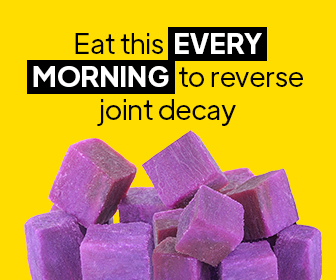When I first started paying attention to my bone health, I thought the answer was simple: drink more milk and maybe take a calcium supplement. But after a routine check-up revealed that my bone density wasn’t as strong as it should be for my age, I realized that nutrition for bone health is not a “one-size-fits-all” approach. That’s when I discovered the importance of personalized nutrition—testing my body’s needs and tailoring my diet accordingly.
In this article, I’ll share what I learned from my own journey, as well as practical tips to help you test, understand, and adjust your diet for stronger, healthier bones.
Why Personalized Nutrition Matters for Bone Health
Strong bones are built from more than just calcium. They need a balance of vitamins, minerals, protein, and lifestyle factors. But the right balance depends on your age, genetics, activity level, and even how well your body absorbs nutrients.
For example, some people absorb calcium easily but are deficient in vitamin D, which helps the body use that calcium. Others may have high calcium intake but low vitamin K2, which is essential for directing calcium into the bones instead of arteries.
This is why personalized nutrition is key. Without testing, you might be taking supplements or eating foods that don’t address your actual needs.
Step 1: Test Before You Guess
The first step to personalizing your nutrition is testing. Here are a few helpful assessments I personally tried:
- Bone Density Scan (DEXA): This gave me a clear picture of my bone strength and highlighted areas of concern.
- Blood Tests: These checked my vitamin D, calcium, and magnesium levels. I was surprised to learn that my vitamin D was much lower than I thought, even though I spent time outdoors.
- Genetic Testing (Optional): Some DNA tests can show whether you’re prone to poor calcium absorption or vitamin D deficiency.
Testing gave me clarity. Instead of guessing, I knew exactly where to focus.
Step 2: Tailor Your Diet Based on Results
Once you know your numbers, you can make smart dietary changes. Here’s what worked for me:
1. Boosting Vitamin D
Since my levels were low, I started spending 15–20 minutes in the sun daily and included fatty fish like salmon and mackerel in my meals. On cloudy weeks, I used a doctor-recommended supplement.
2. Balancing Calcium and Magnesium
I used to rely on dairy alone, but I learned that leafy greens (kale, bok choy), almonds, and sesame seeds are also rich in calcium. Magnesium (from pumpkin seeds, beans, and dark chocolate) helped improve absorption.
3. Adding Vitamin K2
I discovered that fermented foods like natto and aged cheese support calcium distribution. I’d never tried natto before—it wasn’t easy at first, but it made a difference.
4. Prioritizing Protein
Protein is often overlooked in bone health. I made sure each meal had a solid protein source—chicken, beans, or Greek yogurt.
Step 3: Track and Adjust
After a few months of making changes, I repeated my blood tests. My vitamin D levels had improved, and I felt stronger overall—less achy, more energetic during workouts. The key was consistency and small, sustainable changes.
I also kept a food journal, which helped me notice patterns, like when I didn’t get enough calcium on busy days. Adjusting my weekly meal prep around bone-strengthening foods kept me on track.
Practical Tips to Personalize Your Nutrition
- Consult a healthcare provider before making big changes or adding supplements.
- Don’t overdo supplements—more is not always better, especially with fat-soluble vitamins like D and K2.
- Focus on whole foods first—supplements should only fill the gaps.
- Re-test regularly—your needs may change with age, lifestyle, or health conditions.
Final Thoughts
If there’s one thing I learned, it’s that personalized nutrition is empowering. Instead of blindly following general advice, I was able to build a bone-strengthening plan tailored to me.
Strong bones aren’t just about preventing fractures—they’re about maintaining freedom and independence as we age. By testing, tailoring, and adjusting your diet, you can give your bones exactly what they need to stay strong for decades to come.

